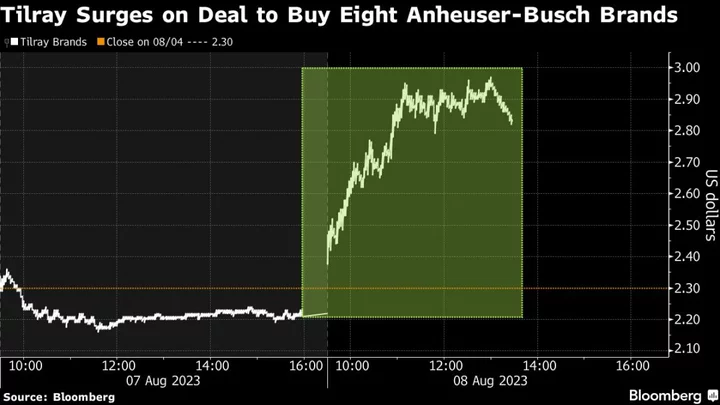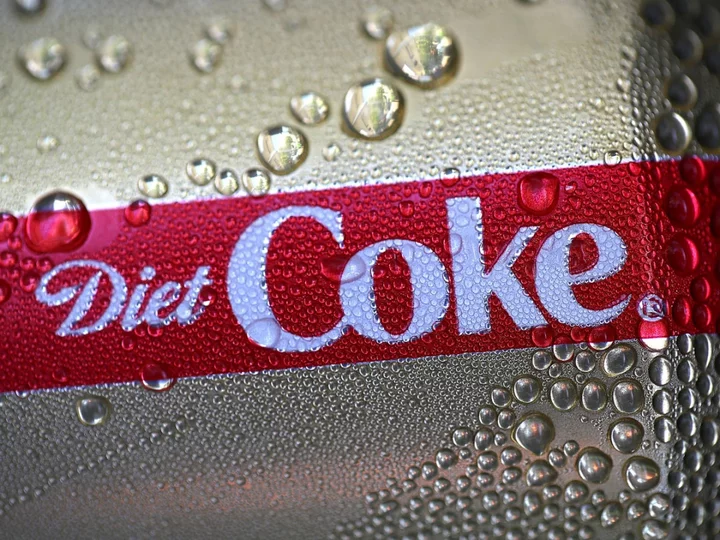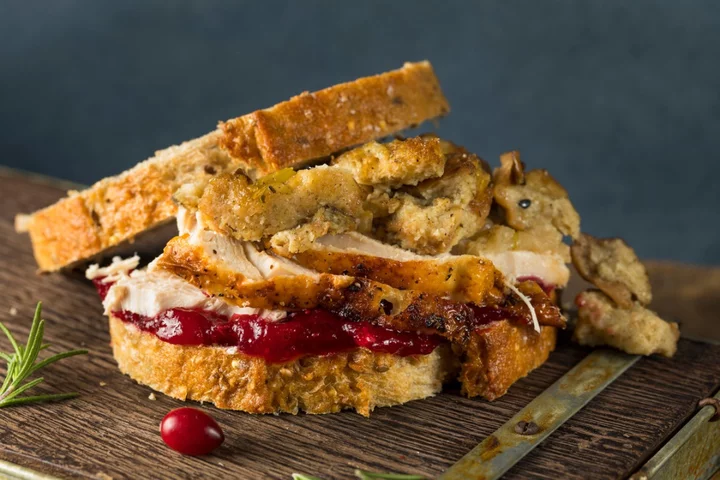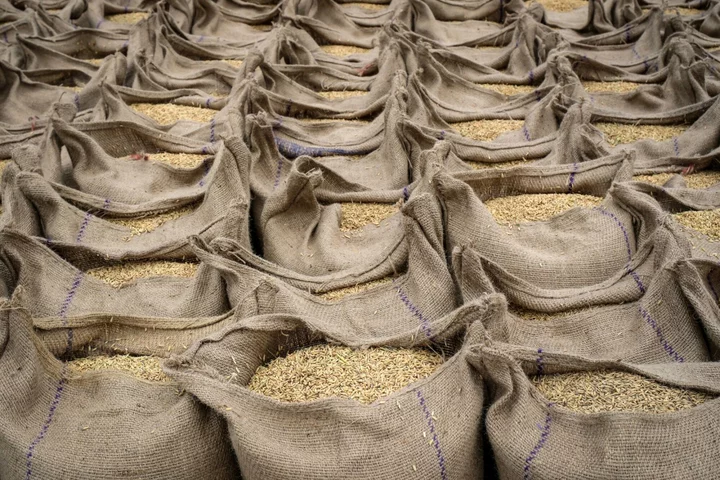Tilray Brands Inc. shares jumped the most since February 2021 after the cannabis and consumer packaged goods company agreed to buy eight beer and beverage brands from the owner of Budweiser.
Tilray will purchase Shock Top, Breckenridge Brewery, Blue Point Brewing Company, 10 Barrel Brewing Company, Redhook Brewery, Widmer Brothers Brewing, Square Mile Cider Company and HiBall Energy from Anheuser-Busch InBev, the company said. The $85 million all-cash deal will make Tilray the fifth largest craft beer business in the US, up from ninth, it added.
“These beer and beverage brands possess the hallmarks of strong consumer loyalty and further diversify Tilray’s growing U.S. beverage alcohol segment,” the company said.
Shares of Tilray rose as much as 34% Tuesday, while US shares of AB InBev fell as much as 1.2%.
Wall Street sees it adding meaningful near-and long-term value to Tilray. Jefferies analyst Owen Bennett estimates the to-be-acquired brands will add around $180 million in sales for Tilray. In fiscal 2023, Tilray’s total net sales were $627.1 million.
The acquisition “marks a major step forward in our diversification strategy,” Chief Executive Officer Irwin Simon said in a press statement. The deal is expected to close by the end of September, according to Tilray’s 8-K filing.
The portfolio of beverages to be acquired from AB InBev add to Tilray’s current beverage brands of SweetWater Brewing Company, Montauk Brewing Company, Alpine Beer Company and Green Flash Brewing Company. Tilray also owns Breckenridge Distillery and Happy Flower CBD sparkling non-alcoholic cocktails.
Longer term, Bennett sees the beverage deal benefiting Tilray’s cannabis business in the US. “It creates a distribution network that can be used for cannabis brands upon legalization,” he said in a note.
Additionally, “it can be used to build cannabis brand awareness in mass market distribution ahead of legalization — this potentially even more impactful when one considers alcohol is increasingly being substituted for cannabis.”









